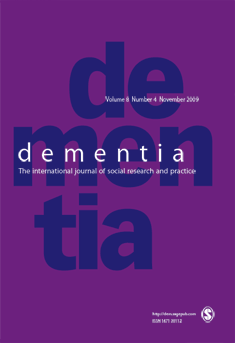Appel à contribution – Gender, Bodies & Technology: (Dis)Integrating Frames
April 26-28, 2012
Roanoke, Virginia
Sponsored by the Women’s and Gender Studies Program at Virginia Tech
Proposal Deadline: September 15, 2011
We invite proposals from scholars in the humanities, social and natural sciences, visual and performing arts, engineering and technology for papers, panels, new media art and performance pieces that explore the intersections of gender, bodies and technology in contexts ranging from classrooms to workplaces to the internet. In keeping with the conference theme, we are asking contributors to include specific reference to the ways in which their own particular disciplinary frameworks shape their approach to their sites of research.
Our confirmed keynote speakers include:
Dr. Judith Halberstam
Professor of English, American Studies and Ethnicity, and Gender Studies, University of Southern California
Dr. Judy Wajcman
Head of Department of Sociology, London School of Economics & Political Science
Specific topics might include, but are not limited to:
. Gender and the technologies of the workplace, education, and public/private spaces
. Disability and technologies of intervention
. Feminist theorizing of the intersections between technology and constructions of embodiment, identity and selves
. Performance, new media and other creative expressions: engaging/enacting/destabilizing conventions of embodiment and technology
. Gendered innovations in technology: gendered objects, design, pasts/futures
. Technological production and control of classed, racialized, aged and gendered bodies
. Personal narrative and oral history as sources of embodied theorizing
. New Media, digital representation and virtual gendered environments
. Medicalized bodies: reproduction, disease, bioethics, body constructions
. Performing/transgressing gender and sexuality
. Technologies of development and sustainability; eco-feminism
. Activism, participatory decision-making and issues of technological citizenship
As an assemblage of people and technologies we see the conference itself as enacting the conference theme. We welcome innovative uses of technology and creative session formats, including performance and interactive presentations, as well as traditional paper presentations. We are committed to the integration of scholarship from the Arts as well as more traditional forms of scholarship and we welcome early contact by email if space and/or technology requirements might present logistical challenges.
Proposals will be reviewed and notification of the outcome will be made by October 15, 2011. We are pursuing publication outlets for selected papers from the conference. Final drafts of papers received before April 26, 2012 will be eligible for consideration. The Gender, Bodies & Technology website, online submission form, as well as the full program from the 2010 conference can be viewed at: http://www.cpe.vt.edu/gbt/
For more information or questions please contact:
Sharon Elber GBT Coordinator
Women’s and Gender Studies Program
Department of Sociology
Virginia Tech
408 McBryde Hall (0137)
Blacksburg, VA, 24061 USA
mailto:selber@vt.edu selber@vt.edu
http://www.cpe.vt.edu/gbt/ http://www.cpe.vt.edu/gbt/


